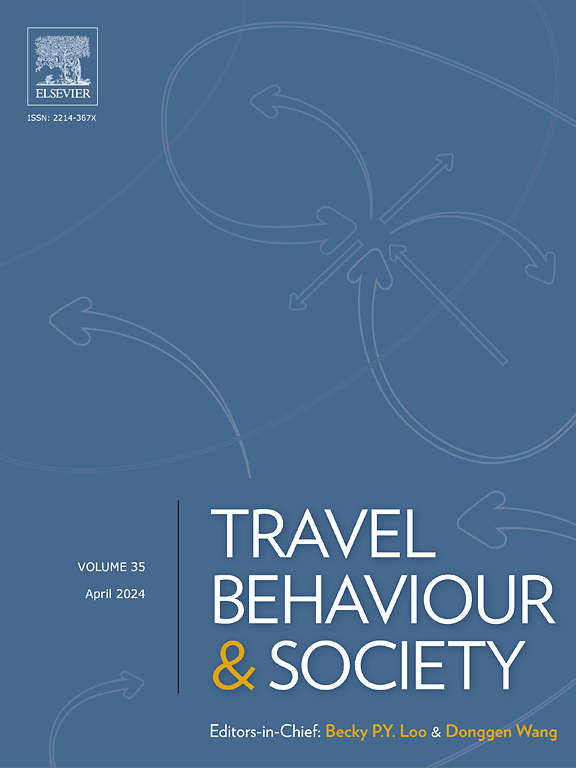探索电动摩托车采用的决定因素和旅行行为的变化:来自印度尼西亚的见解
IF 5.7
2区 工程技术
Q1 TRANSPORTATION
引用次数: 0
摘要
电动摩托车(EMs)作为一种更清洁的汽油动力汽车替代品,在减少空气污染方面具有巨大的潜力,已引起越来越多的关注。虽然最近的研究调查了影响新兴市场采用的因素,但有限的研究将心理和人口决定因素与实际使用行为和模式转变联系起来,特别是在印度尼西亚的背景下。为了弥补这一差距,该研究通过纳入可感知的安全、环境问题和政策措施,扩展了UTAUT2框架。它考察了新兴市场的采用意图和由此带来的旅游行为变化。数据来自印度尼西亚雅加达的445个新兴市场用户,并使用偏最小二乘-结构方程模型进行分析。研究结果表明,绩效预期、社会影响、享乐动机、习惯和感知安全显著影响学生采用电子商务的意愿。这种意图反过来又增加了新兴市场的使用,减少了对私家车的依赖,并补充了公共交通。人口因素调节关键关系:年龄影响习惯如何塑造新兴市场使用,收入和教育影响绩效预期如何影响意向。教育也强化了安全感和享乐动机对意向的作用。用户满意度进一步强化了意图和实际使用之间的联系。建议扩大充电基础设施,改进电池技术,推广时尚设计和用户推荐,以加速采用。本文章由计算机程序翻译,如有差异,请以英文原文为准。
Exploring the determinants of electric motorcycle adoption and changes in travel behavior: Insights from Indonesia
Electric motorcycles (EMs) have garnered increasing attention as a cleaner alternative to gasoline-powered vehicles, offering substantial potential for reducing air pollution. While recent research has examined factors influencing EM adoption, limited studies have linked psychological and demographic determinants to actual usage behavior and mode shifts, particularly within the Indonesian context. To bridge this gap, the study extends the UTAUT2 framework by incorporating perceived safety, environmental concern, and policy measures. It examines both EM adoption intentions and resulting changes in travel behavior. Data were gathered from 445 EM users in Jakarta, Indonesia, and analyzed using Partial Least Squares–Structural Equation Modeling. Findings indicate that performance expectancy, social influence, hedonic motivation, habits, and perceived safety significantly influence the intention to adopt EMs. This intention, in turn, increases EM usage, reduces dependence on private vehicles, and complements public transport. Demographic factors moderate key relationships: age affects how habits shape EM usage, income and education impact how performance expectancy influences intention. Education also strengthens the role of perceived safety and hedonic motivation on intention. User satisfaction further reinforces the connection between intention and actual usage. Expanding charging infrastructure, improving battery technology, and promoting stylish design and user testimonials are recommended to accelerate adoption.
求助全文
通过发布文献求助,成功后即可免费获取论文全文。
去求助
来源期刊

Travel Behaviour and Society
TRANSPORTATION-
CiteScore
9.80
自引率
7.70%
发文量
109
期刊介绍:
Travel Behaviour and Society is an interdisciplinary journal publishing high-quality original papers which report leading edge research in theories, methodologies and applications concerning transportation issues and challenges which involve the social and spatial dimensions. In particular, it provides a discussion forum for major research in travel behaviour, transportation infrastructure, transportation and environmental issues, mobility and social sustainability, transportation geographic information systems (TGIS), transportation and quality of life, transportation data collection and analysis, etc.
 求助内容:
求助内容: 应助结果提醒方式:
应助结果提醒方式:


